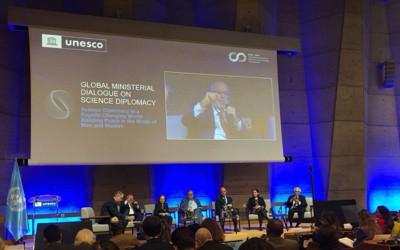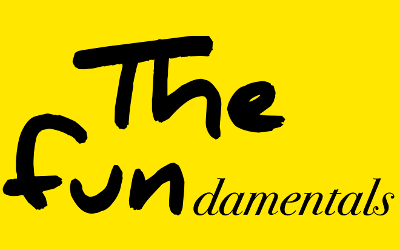How can science and technology build a fairer, more sustainable world?

This question was at the heart of the Global Ministerial Dialogue on Science Diplomacy, held on 13 March 2025 at UNESCO Headquarters in Paris. The event brought together nearly 1,000 participants - including ministers, international organisations, and academic leaders such as The Open University (OU) - to explore how scientific and technological collaboration can help solve global challenges.
Dr Alexandra Okada, Associate Professor of Global Education and Digital Transformation at The Open University, highlighted the critical links between science, diplomacy, and education as a driver of both. She explained that diplomacy increasingly relies on robust scientific evidence, and that education is essential for preparing researchers and citizens to engage in international cooperation rooted in equity, inclusion, and innovation.
She emphasised the need for new forms of collaboration - particularly digital “common spaces” where researchers and communities across countries can co-create knowledge and solutions. One example is the CONNECT open schooling platform, which has engaged over 50,000 students in five countries in sustainability-focused projects using the OU’s CARE–KNOW–DO framework.
A standout initiative is the Microplastics – Mastery Science learning resource, where students from multiple countries first CARE by exploring the impact of plastic pollution on ecosystems and human health; then KNOW by engaging with scientific evidence, including interviews with local scientists and UK marine biologist Prof. Richard Thompson, who coined the term “microplastic”; and finally DO by designing filtration solutions tailored to their communities—transforming knowledge into meaningful action. This model blends scientific inquiry with community insight, supporting inclusive innovation and collaborative problem-solving.
Dr Okada stressed that bridging formal education with Indigenous and local perspectives is especially urgent as the Amazon faces historic drought. She stated: “Education is essential for equipping future generations with the scientific, technological, and diplomatic skills - including intercultural competence - needed to address global challenges. The wisdom of Indigenous communities must be respected and protected to ensure that both knowledgeable action and actionable knowledge are used to preserve ecosystems."
Participants at the forum also recognised the challenges: growing global polarisation, misinformation, and a decline in public trust in science. These issues risk weakening the international collaboration needed to address global crises. In response, the European Union, UNESCO, and governments worldwide are launching new frameworks and centres for science and technology diplomacy—seeking to reinforce international cooperation and ensure that science and technology serve the public good.
“Science is the closest thing we have to an international language,” said Sir Peter Gluckman, President of the International Science Council.
The forum concluded with a call to strengthen science and technology diplomacy, rebuild trust, and support education that empowers young people to tackle global issues through collaboration and care.
References
What’s next?
The inaugural Technology Diplomacy Forum on June 18, 2025, at UNESCO will bring together international leaders, policymakers, and experts to discuss the future of digital governance, AI, cybersecurity, and global cooperation.
Open Societal Challenge:
CONNECT2030 envisions a transformative shift in global education, accelerating sustainable development (SDG) through the CARE–KNOW–DO model in South America and United Kingdom Find out more: CONNECT2030 – Open Societal Challenges
European Commission funded project:
METEOR – Methodologies of Teamworking with Eco-Outwards Research
Contact our news team
For all out of hours enquiries, please telephone +44 (0)7901 515891
Contact detailsNews & articles

The FUNdamentals: Why fun matters more than we think
In a world that feels increasingly serious and pressured, fun can seem like a guilty pleasure — something optional, even frivolous. But what if fun isn’t an add on at all? What if it’s essential?